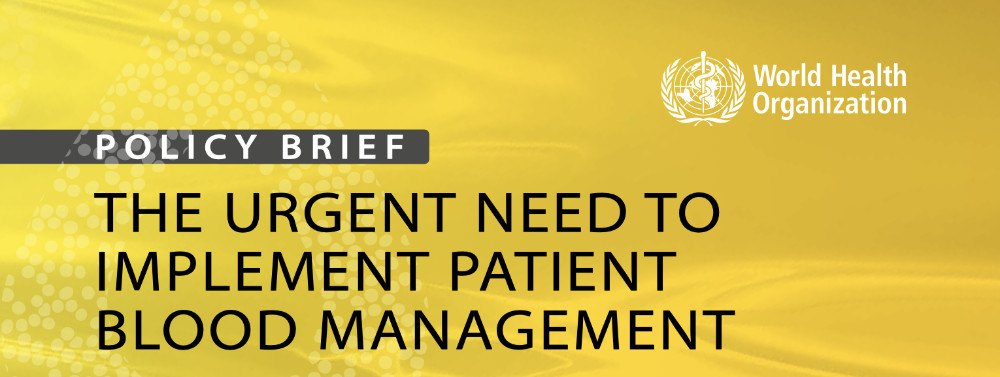IFPBM congratulates the World Health Organization (WHO) on the publication of this critical milestone that promotes the implementation of Patient Blood Mangement worldwide.
Download PDF or click on the image above
The WHO policy brief aims to:
• create awareness about the enormous, but greatly under-appreciated global disease burden of iron deficiency, anaemia, blood loss and bleeding disorders;
• create a sense of urgency for health care entities to implement PBM, a systematic, multidisciplinary, multiprofessional concept to routinely minimize these risk factors, and, in so doing, significantly and cost-effectively improve health and clinical outcomes for hundreds of millions of medical and surgical patients, pregnant women, neonates, children, adolescents, elderly people, and the population as a whole;
• announce the upcoming World Health Organization (WHO) initiative to develop PBM Implementation Guidelines that will serve as a framework for health care leaders of all Member States;
• alert health ministries, social security services, health departments and policy-makers about this global initiative and call on them to prepare for and foster the rapid dissemination and implementation of PBM in their jurisdiction;
• coordinate these efforts with existing initiatives pertaining to improved patient-centred care, patient safety and quality of care, including maternal, prenatal and child care, and nutritional supplementation programmes;
• act as an accelerant for change by educating the readers about what PBM is and is not, why PBM implementation is critical, and calling attention to the barriers to implementation.
IFPBM Associate, Prof. James Isbister states “This WHO policy brief is a far-reaching, evidence-based and extensively referenced document that enunciates the need, core principles, economics and ethics of PBM. It places the patient and the global community at the centre of the unmet need to manage and preserve a patient’s own blood.”


